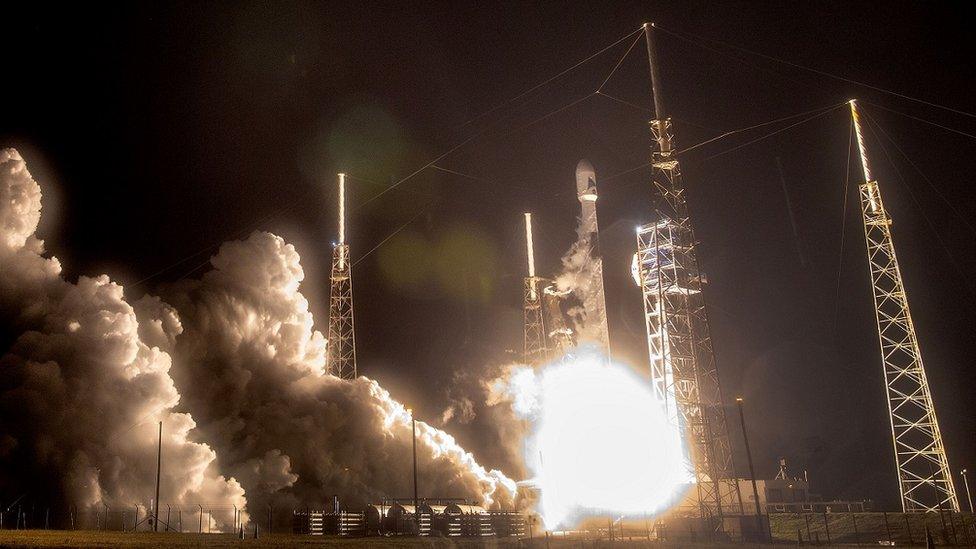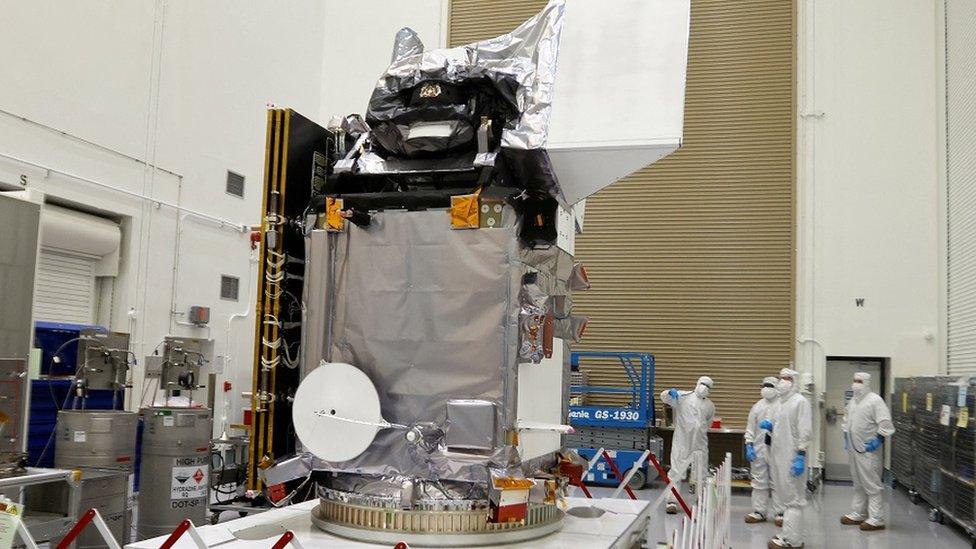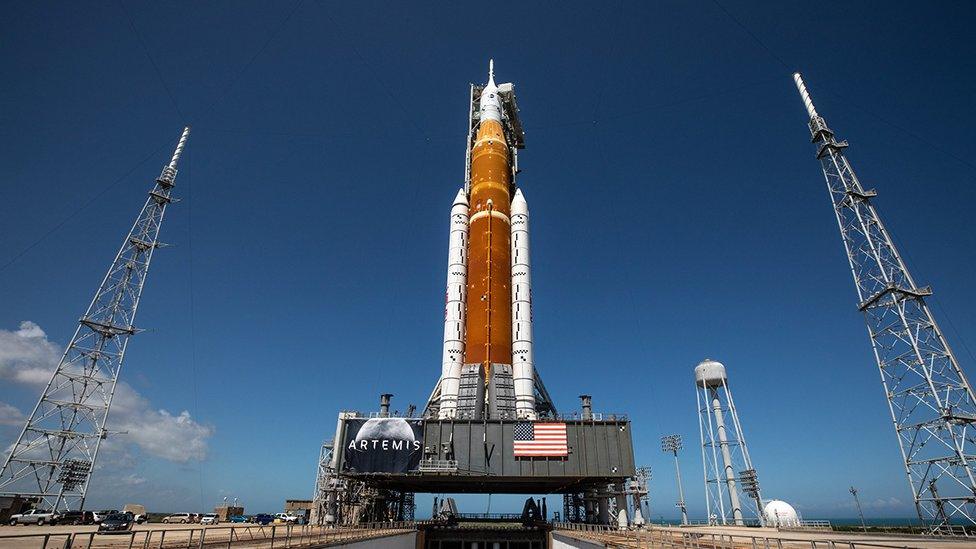NASA has launched a new climate mission
- Published
- comments

The PACE satellite was launched from the SpaceX Falcon 9 rocket at Cape Canaveral Space Force Station in Florida on Thursday
Nasa has successfully launched a satellite into space which will study the health of the ocean, air quality and the impact of climate change.
The Plankton, Aerosol, Climate, ocean Ecosystem satellite, which is also known as PACE, was launched from the SpaceX Falcon 9 rocket at Cape Canaveral Space Force Station in Florida.
The PACE mission will study microscopic life in water and microscopic particles in the air from hundreds of miles above the Earth to give scientists insights into the how the ocean and atmosphere work together and how climate change affects that.
"Congratulations to the PACE team on a successful launch. With this new addition to NASA's fleet of Earth-observing satellites, PACE will help us learn, like never before, how particles in our atmosphere and our oceans can identify key factors impacting global warming," said NASA administrator Bill Nelson.
What will the PACE satellite do?

The spacecraft is equipped with instruments to assess the health of the oceans from space
The satellite has a special instrument to study ocean colour which will allow researchers to track the distribution of phytoplankton, which are tiny plant-like organisms found in oceans, lakes, rivers and other large bodies of water, for the first time from space.
Scientists will be able to use the data they collect to help understand and predict the health of fish stock, track harmful algae blooms, and to also identify changes in the marine environment.

Phytoplankton are tiny organisms found in large bodies of water
The spacecraft also has two instruments which will detect how sunlight interacts with particles in the atmosphere, giving researchers important new information including the air quality at local, regional and global scales.
"After 20 years of thinking about this mission, it's exhilarating to watch it finally realized and to witness its launch. I couldn't be prouder or more appreciative of our PACE team," said Jeremy Werdell, PACE project scientist at NASA's Goddard Space Flight Center.
"The opportunities PACE will offer are so exciting, and we're going to be able to use these incredible technologies in ways we haven't yet anticipated.
"It's truly a mission of discovery."
- Published9 January 2024

- Published10 January 2024

- Published22 August 2023

